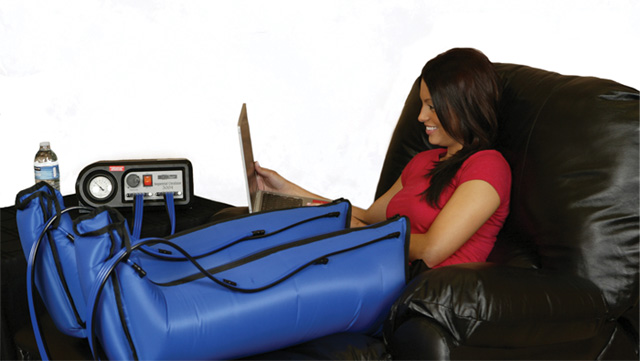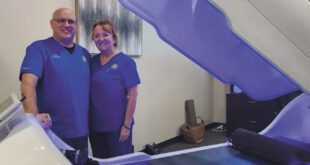By Alyssa Parker –
What does limb swelling have to do with your lymphatic system?
The lymphatic system serves as one of the body’s main highways throughout its network of vessels and ducts, for body fluid entering into the blood stream. Before this body fluid also referred to as lymph fluid can enter the blood stream the lymphatic system works as a filtration system. Everything must pass through, from disease fighting immune components to cancer cells. Finding the cause of your edema is vital to getting the proper medical treatment. Many patients use diuretics (water pills) or compression stockings and receive little or no results with reducing the swelling. If compression stockings get worn out or stretched over time, many patients aren’t receiving the needed compression. Diuretics may be useless and harmful over time if your edema (swelling) is a symptom of chronic venous insufficiency or lymphedema. Diuretics draw fluid from your venous system that your body must have in order to balance the continual fluid deposit from your arterial capillaries; if the needed interstitial fluid is not present because you are taking a diuretic, this will only aggravate your lymphatic system which may lead to additional fluid retention and additional swelling.

Clinicians and patients face challenges worldwide on managing chronic swelling in the limbs due to lymphedema. Lymphedema is the body’s inability to transport lymph fluid through the lymphatic system. This results in waste build up and causes chronic swelling. Common signs and symptoms that occur are fluid accumulation in a limb, a feeling of heaviness or tightness, thickening of the skin and pain or redness in the affected limb. There are two different types of lymphedema that an individual may have, first there is primary lymphedema, also known as Milroy’s Disease which is when a patient is born with an abnormal lymphatic system. Secondary lymphedema which is the other type of lymphedema can occur after a patient has had surgery, radiation, trauma, or cancer It may take months or years for Lymphedema to manifest because of its slow progression. It is imperative that Lymphedema is treated quickly and effectively, regardless of the severity because your swelling no matter what stage it’s at will only get worse with time. Complications dramatically decrease when treatment is started in the earliest stage of Lymphedema. When left untreated common complications include cellulitus or lymphangitis, skin changes such as skin thickening, restricted movement of a limb, or chronic wounds.
Treatment
There is no cure for Lymphedema; you must seek appropriate treatment to prevent further complications. Lymphedema is a degenerative condition which means, like we said earlier “will only get worse over time without treatment” A widely recognized non invasive, and highly effective treatment is using a compression pump. This is a safe and effective way to assist your body’s circulatory system in moving the excess fluid which has accumulated in the limb and can cause painful swelling, non-healing wounds, heaviness, and discomfort decreasing your mobility. The compression pump is a gentle massaging technique that compresses in a repetitive cycle, similar to that of a normally functioning lymphatic system which has not been damaged. This is a great treatment option for patients who have tried compression stocking, elevation, diuretics, or massage with little or no relief.
This is where choosing a physician who is experienced in recognizing and treating Lymphedema or CVI is critical. Some good questions to ask your physician include:
- Does my family have a history of swelling (Hereditary Lymphedema)?
- Stemmer’s sign present?
- Pitting- (push your finger into your skin and count how long it takes to return) or skin hardening?
- Hemosiderin staining- (port wine skin stains or “red socks”) appear from the ankles down?
- Traumatic injury or surgery potentially damaging Lymph nodes (Hip replacements, etc)?
- Radiation to Lymph areas?
Remember ANY swelling is an indication of an overloaded Lymphatic system.
The compression pump is approved by Medicare and covered by many commercial insurers; Actual coverage varies with individual plans. Acute Wound Care, LLC is a highly focused local provider of wound products and compression pumps working with select area physicians highly versed in this condition.
ACUTE WOUND CARE
For more information and articles on this topic, Google “Acute Wound Care” or visit www.AcuteWoundCare.com or call 239-949-4412 and speak with a specialist.
 Central Florida Health and Wellness Magazine Health and Wellness Articles of the Villages
Central Florida Health and Wellness Magazine Health and Wellness Articles of the Villages



